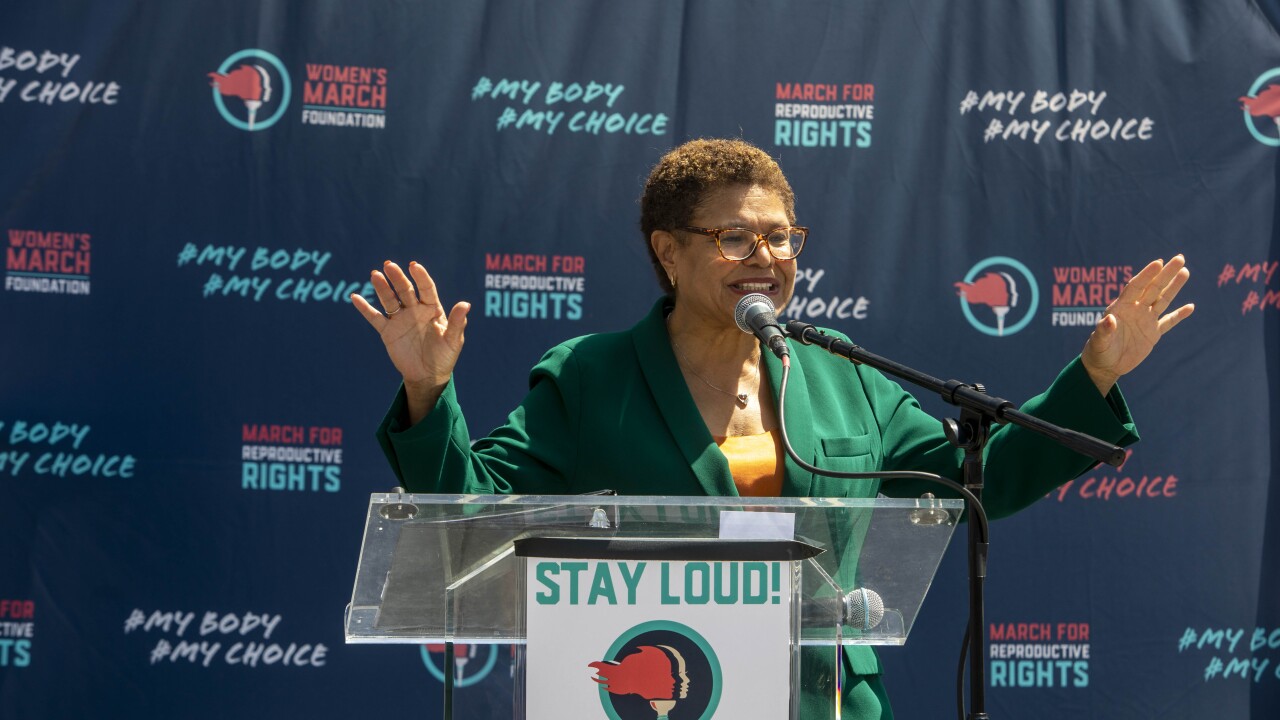
Puerto Rico Gov. Alejandro García Padilla proposed a budget that covers the commonwealth's increasing external debts but not all of its internal ones.
The governor released a proposal late Wednesday that calls for a $400 million increase in debt repayment in the coming fiscal year. He also wants $82 million more for government contributions to the state retirement system. The proposed $9.8 billion General Fund budget has a total of $1.537 billion for debt service.
In his proposal for special assignments, the governor is proposing cuts, compared to existing plans, of $327 million for government debt to the Government Development Bank for Puerto Rico and $3 million for debt to the Judicial Branch. It also proposes a cut of $58 million from planned spending levels on the state retirement system and $10.7 million from planned spending for the teachers' retirement system.
The proposed General Fund budget of $9.8 billion would be an increase from the current year's approved budget of $9.565 billion. The governor intends for the current year's budget to balance income and expenses, according to the special assignment budget. The governor is proposing for all government activities to rise to $28.82 billion in fiscal year 2016 from $28.13 billion this fiscal year.
The governor's proposed budget expects and depends on the approval of a proposed increase in consumption taxes. As of late afternoon Thursday the Puerto Rico House of Representatives was considering this tax increase proposal and it was unclear if a majority would vote for it.
In addition to the tax hike, the governor is proposing a total of $674 million in spending cuts to allow the increased spending on debt and pensions and still have a balanced budget.
Much of these savings would come from closing 95 schools and relocating the students. The budget also saves $75 million through cuts in outside professional services.
On Thursday afternoon Moody's Investors Service downgraded the Commonwealth of Puerto Rico's and Government Development Bank for Puerto Rico debt deeper into junk. Moody's dropped the commonwealth's general obligation rating to Caa2 from Caa1. It dropped a broad range of other Puerto Rico bonds, to ratings equal or below Caa2.
For example it dropped Puerto Rico's senior lien Puerto Rico Sales Tax Corporation (COFINA) bonds to Caa2 from B3. It dropped Government Development Bank for Puerto Rico notes to Ca from Caa1. Ca is Moody's second lowest long-term rating.
Other prominent credits downgraded to Ca were the bonds of the Puerto Rico Highways and Transportation Authority and the Puerto Rico Infrastructure Finance Authority. All ratings have negative outlooks.
Moody's vice presidents Ted Hampton and Nicholas Samuels said the GDB faced a 53% debt service surge in fiscal year 2016, which starts July 1. This will be aggravated by expected deposit withdrawals by the Puerto Rico Electric Power Authority and the Puerto Rico Housing Administration.
If Puerto Rico were to be able to sell its anticipated $2.9 billion PRIFA bond, it would provide the GDB with a substantial boost in liquidity because PRIFA would use $2.2 billion to pay off the PRHTA's debt to the GDB. However, the analysts expect that Puerto Rico won't be able to sell this bond by the end of June. This, they said, would force Puerto Rico to sacrifice payment on certain securities, like the GDB notes, in the summer to conserve cash for general obligation bond payments, which are constitutionally protected.
Of the three ratings agencies Moody's has generally been the most pessimistic about Puerto Rico since at least December 2012. The GO debt is rated CCC-plus by Standard & Poor's and B by Fitch Ratings.
Initially, municipal analysts' reactions to the budget were mixed.
The governor's proposed sales "tax hike is likely be approved by the House today and then will move on to the Senate," said Municipal Market Analytics managing director Robert Donahue. "Bonds have traded up on this news."
"The willingness to raise taxes and cut spending is some sorely needed good news, which will benefit certain bonds in Puerto Rico's debt structure," Donahue continued. "Specifically, the COFINA coverage levels will rise, as will GO's and appropriation credits, given ostensibly reduced risk of a liquidity crisis. Public corporations are less likely to see trading benefits, although structures that are subject to 'clawback' may benefit marginally."
Evercore director of municipal research Howard Cure said, "The commonwealth's revenue estimates have traditionally been inflated and I wonder how accurate these estimates will be given the large increase in the sales tax rate and a history of poor collection rates. In addition, there is a question about the economic impact on the fragile economy of a substantial tax increase."





